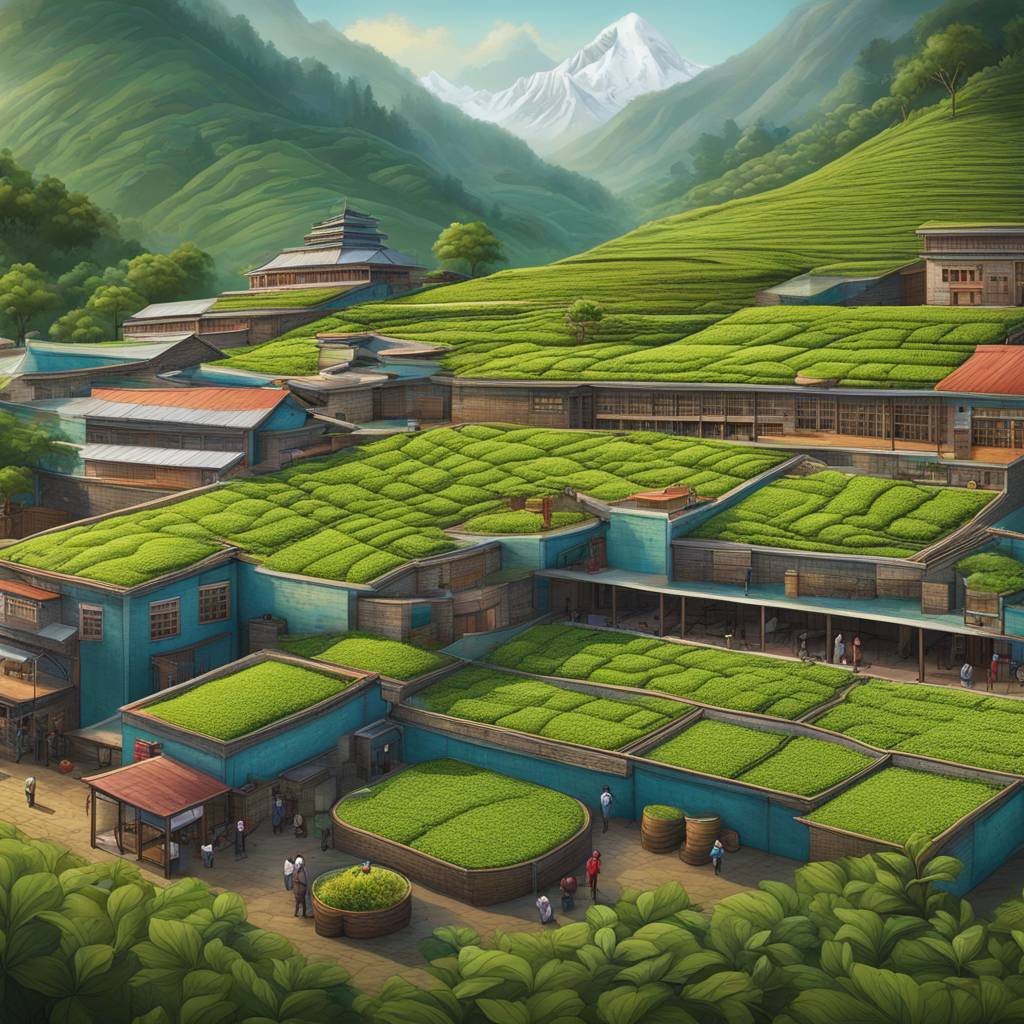In the Kumaon region of the Indian Himalayas, Young Mountain Tea is working on building something new: Kumaon Tea, a farmer-owned tea factory in partnership with smallholder farmers. This initiative aims to produce premium specialty tea that could increase farmers’ incomes while challenging the industry’s colonial legacy. Co-founder Raj Vable’s goal is to create a system that leads to long-term change.
Vable’s journey began around 15 years ago while working on solar electrification projects in villages. He saw that farmers in the area were facing challenges such as migration to cities, leaving behind fragile farmland vulnerable to landslides. Recognizing the agricultural expertise of the farmers, he proposed the idea of growing tea to a cooperative of farmers, which led to the founding of Young Mountain Tea in 2013. Despite initial setbacks, Vable learned valuable lessons and continued his efforts.
Following a failed tea crop, Vable connected with tea farmer Desmond Birkbeck in 2022. Together, they founded Kumaon Tea to produce high-end specialty tea for health-conscious consumers in the U.S. Facing challenges with compliance regulations, Young Mountain Tea received a USAID grant to make improvements. Subsequently, Vable decided to build a new factory to meet the standards required for premium tea production.
Over the next two-and-a-half years, Vable worked on establishing a legal structure for a farmer-owned factory. This involved setting up multiple companies, including a U.S. subsidiary supporting impact-focused activities and an Indian company owning the factory. The farmers, who were not organized into a legal entity, had a trust set up on their behalf with a stake in the factory. The goal was to create a vertically integrated system that would benefit farmers and challenge traditional tea production methods.
Kumaon Tea’s farmers, mainly women, stand to earn significantly higher rates for their harvest and receive additional income through collective ownership in the factory. The project also focuses on teaching farmers business skills and regenerative farming practices. With a total of about $2.5 million raised in funding, including support from grant organizations and impact investors, the factory construction began earlier this year. Production is set to start in mid-May, with plans to sell in the U.S. by September.
The factory will operate with a minimal workforce and aims to disrupt the traditional tea production model rooted in British colonial rule. Through collective ownership, the hope is to create lasting impact and empower farmers to benefit from the entire process of tea production. Vable’s vision is to develop a new model for tea production and sales, ultimately leading to a more equitable and sustainable system for all stakeholders involved.


